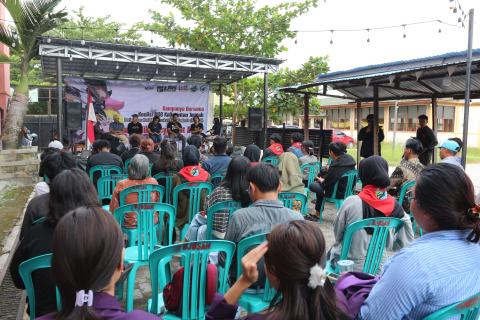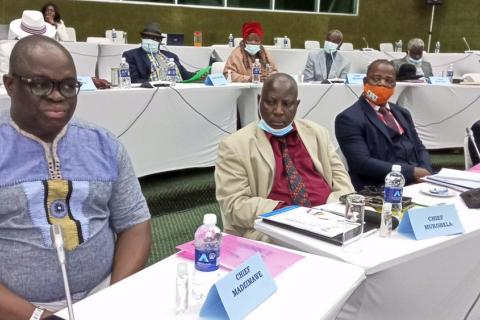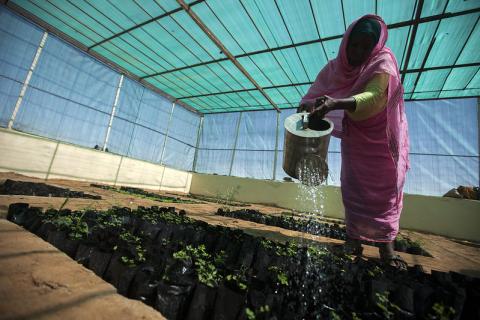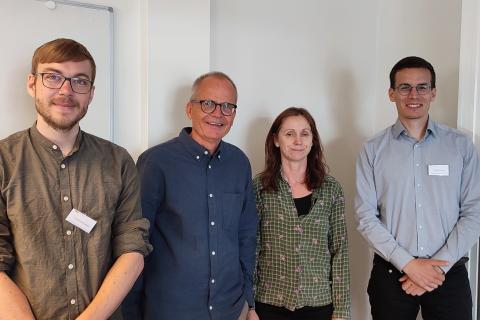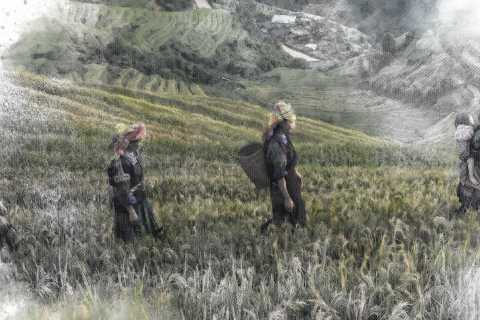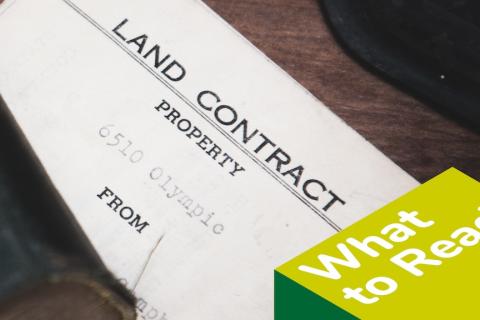How are civil society and impacted communities working to change the governance of land-based investments?
Traditional authorities need a clearer role in land governance
Traditional authorities in Zambia complain that the government does not consult them when land is allocated for investment projects, while communities say chiefs are neglecting their interests. Jesinta Kunda of Zambia Land Alliance says more clarity is needed on the role of traditional authorities, in law and practice, to ensure large-scale investments in agriculture, mining and other sectors are governed better – particularly in light of the rising demand for critical minerals found in Zambia. She urges the government, traditional leaders and citizens to seize the opportunities presented by current legal reforms in Zambia to create change.
Mining contract transparency improves local planning in Mali
In Mali, a civil society coalition worked with communities to achieve greater transparency on gold mining contracts and to hold authorities and companies to account. Their aim: to turn Mali’s mining sector into a lever for socio-econmic development and improve living conditions around mining sites.
Nouhoum Diakite charts a success story, with limitations…
Incorporating Climate Considerations Into Investment Assessment Processes: Guidance for National and Local Governments
Climate change poses an existential threat to ecosystems, with potentially far-reaching impacts on agriculture, forestry, wind and solar energy, and other land-based investments. These investments can also further exacerbate detrimental climate change impacts if they are not sustainably implemented.
Webinar Recap : When carbon markets go wrong - How to ensure access to remedy for land tenure violations
This webinar, the fourth of the Advancing Land-based Investment Governance (ALIGN) series, took place on February 9th, 2024, under the title “When carbon markets go wrong: How to ensure access to remedy for land tenure violations”. The webinar drew in 562 participants and featured panelists from policy experts to community leaders. The webinar was jointly organized by the Land Portal Foundation, the International Institute for Environment and Development (IIED), Namati and the Columbia Center on Sustainable Development (CCSI).
From Pledges to Progress: Financing Climate Initiatives Beyond COP28
Two years after international donors pledged $1.7 billion to Indigenous Peoples at COP26, a recognition of their crucial role in protecting biodiversity and carbon capture, there has been good progress in preparing the systems needed for the money to be disbursed.
Webinar Recap: Traditional Authorities in Africa and Their Role in Land-Based Investment Governance
In a thought-provoking webinar moderated by Nolundi Luwaya, Director of the Land and Accountability Research Centre at the University of Cape Town, experts from across Africa convened to unravel the complexities of the role of traditional authorities in land-based investment governance. This event brought to light the unique challenges and strategies employed by traditional authorities in managing land-based investments.
Business as usual? The role of large-scale land acquisition in carbon offset projects and deforestation-free supply chains
In the wake of global climate action, large-scale land acquisitions (LSLAs) for renewable energy and carbon offset projects will increase the pressure on land. In addition, deforestation-free value chains that are also intended to reduce carbon emissions will require changes in the conduct of LSLAs. This session assessed the scope of these investments and policies and reviewed their livelihood and environmental impacts in the Global South.
Key takeaways
Scaling bottom-up or community-based initiatives towards fair and inclusive land governance
This panel session reflected on the definition of ‘scaling-up’ with experts from the field bridging experiences from the ground to the theoretical concept of scaling. The focus lied on scaling for increased tenure security – geographically and/or institutionally. Reflections were given on what was scaled, why, how scaling unfolds and what has been learned – in the field of land governance. The session was organized by LAND-at-scale. Scaling is at the heart of both the name as well as the strategy of the LAND-at-scale program (LAS).
They came, looked and left: The legacy of large-scale land deals that failed
A review of four recent articles about an underexplored issue: the reasons for large-scale land deals to fail and what that means for communities and society

